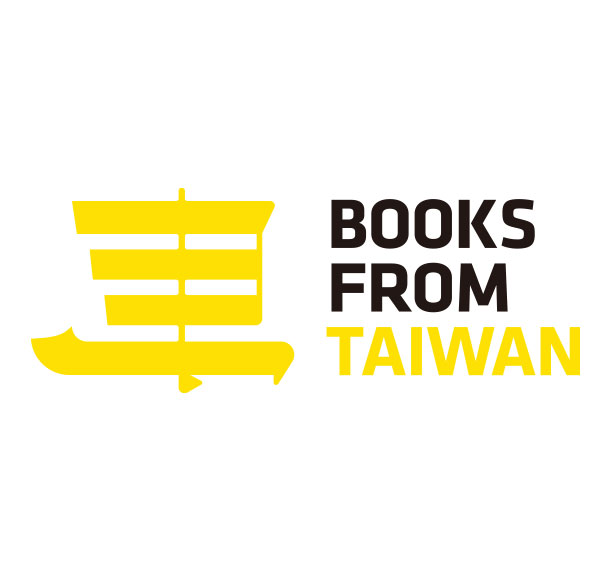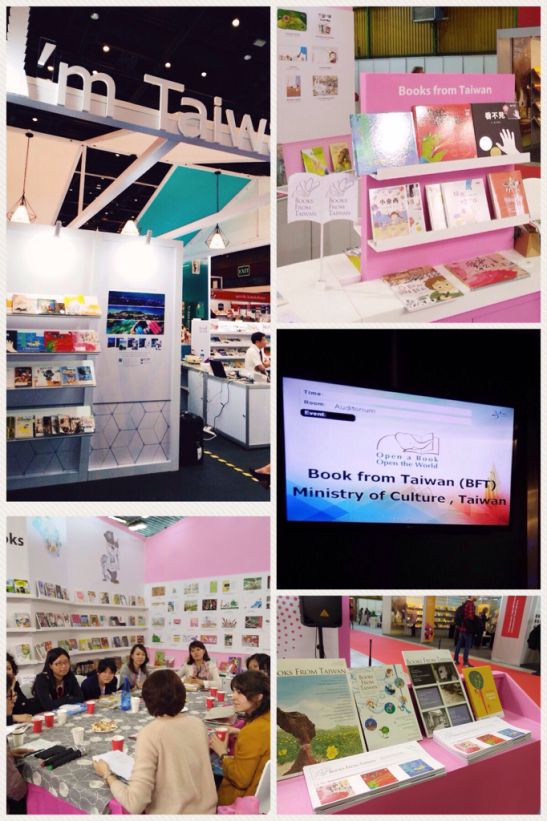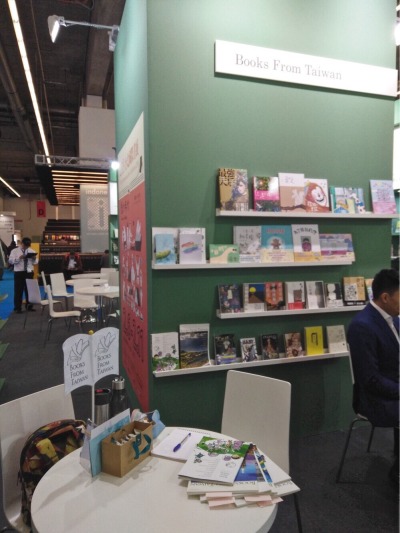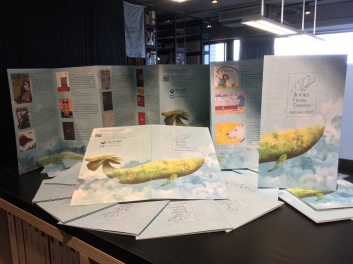The sixth and seventh editions of Books from Taiwan each featured a pair of titles from the unique genre of graphic documentary. The Factory and Halo-Halo Manila, showcased in the seventh edition and following on the heels of 80s Diary in Taiwan and Bonjour Angoulême!, are both the work of Slowork Publishing, a house devoted to the promulgation of graphic documentary from Asia. Recently, the house’s founder, Huang Pei-Shan, was kind enough to grant us an interview.
BFT: Hi, Pei-Shan. Could you start by introducing Slowork Publishing, and tell us about what drove you to establish the business and start producing graphic documentary?
Slowork is a publishing house that specializes in graphic documentary titles. Our books tell the stories of real people and events exclusively through the narrative form of the graphic novel.
I discovered this kind of work when I was studying art in France, sometime around 2008 – biographical graphic novels, graphic novels that described psychological states, or told stories of war or postwar trauma, history, travel, and social issues. They were kind of like documentaries, which I absolutely love, except on paper. When I came back to Asia in 2009, the richness of our life and culture that I felt made it clear to me that my future lay in the “documentary” mode. So I tried a bunch of different things for a few years, and finally settled to work with print and graphic novels. I also decided to take up the editor’s role, not the artist’s, because I have a strong sense of image and narrative, but I just can’t draw. And so Slowork was born.
The Factory first came to life when illustrator Yang Yu-Chi attended the Slowork Workshop on Graphic documentary, and grew into a full-fledged work under your guidance. Can you tell us more about the story this title is telling, and the unique aspects of its artwork? Like, why are the workers portrayed as penguins, and why there’s no text?
This piece integrates the experiences of Yang Yu-Chi’s mother and her fellow factory workers. From the 1970s to the 1990s, Taiwan became factory to the world, producing and assembling products for global export. The country’s economic boom largely rode on the shoulders of these young female factory workers, who raised Yang Yu-Chi and the rest of that younger generation of Taiwanese. But just as those factories once moved from Japan to Taiwan, they moved again in the 90s from Taiwan to the cheaper region of mainland China, and the vast majority of the workers were abandoned by investors because they had insufficient legal protection. They lost their jobs and their retirement. A lot of senior workers like Yu-Chi’s mother who were about to retire from fairly comfortable jobs at international factories were then forced to work in dirtier, lower-paying domestic plants so they could keep feeding their family. Yu-Chi’s work isn’t meant to be an accusation, but rather a thorough description of an entire generation: the book is filled with specific childhood memories, like the young girl’s mother being unable to afford the doll she made with her own hands, so she would bring remaindered parts home, which her neighbors would assemble. These are the collective experiences of a full two generations of Taiwanese people. They’re the history behind the “Made in Taiwan” stamp.
The Factory was Yang Yu-Chi’s first nonfiction work, and I think the pain and brutality of the story motivated him to find ways to make it softer and less direct. During the workshop, there were discussions of anthropomorphic storytelling, and that inspired him to use penguins. The frozen Antarctic landscape represents the heartlessness of economy and history; it’s a really nice touch. His choice makes the story more resonant, and I think now that those factories are now leaving China in favor of southern and southeast Asia, if you gave a Chinese factory worker this book, it would probably move them. (In point of fact, we were invited to exhibit the work at a show in China just last year.)
There’s an American graphic work called MAUS that also uses different kinds of animals to represent people from different countries. The difference between those characters and Yu-Chi’s penguins is that the penguins don’t speak. If they did, he thinks it would be too anthropomorphic; he wants them to be imagined as symbols, not metaphors. We as readers should imagine penguins as factory workers facing these difficulties, but we need not import their image directly into a Taiwanese context. The text-less silence also fits the story’s somber tone. Creating ambience was never an issue; the problem was how to communicate the facts of the system and the stolen retirement. But Yu-Chi had a brilliant idea: he tied everything together with the image of a calendar.
There are only two instances of text in the entire piece. The first is an introductory poem, commissioned from another writer, which describes the helplessness of our protagonists, who are trapped in this world of factories. The second instance occurs at the very end, in which we describe the specifics of the historical situation with a brief epilogue.
In another interview, you said that nonfiction was your focus at Slowork, while the graphic novel was simply one mode of communication. Can you talk about how you as an editor work with graphic artists to find the right illustrative style to fit content? Have there been memorable moments?
As I’ve said, documenting evidence and telling the truth are my passions. I’ve exposed myself to much more than international graphic documentaries; I’ve watched countless documentaries and art films, and read many different kinds of nonfiction literature. A lot of artists feel trapped by the idea of nonfictive illustration, because they feel like nonfiction writing can be no more than faithful description and narrative. But that’s not the whole picture. So after we’ve found a topic, I frequently have to break open the boxes they work inside, but before I do that, we have to uncover the core idea the artist wants to express. If there’s an event but no idea, we have nothing to talk about. Frequently, the piece’s style is the artist’s style, and that’s rarely under contention. I put more energy into editing the panels, with a particular eye to the coherence of the plot and the strength of artistic expression. It’s a process of constant communication, brainstorming, and providing references to the artist.
When we started working with Yu-Chi on a piece about blindness called Welcome to the Dark Side, we found that one section, which is about Yu-Chi’s own family, was particularly powerful, and so we suggested he move it to the beginning of the work. It’s the story of his grandfather’s gradually going blind while an active duty soldier during the Second World War, a terrifying tale. Yu-Chi is really good at highly illusory and symbolic illustration, and so I suggested he try re-casting the historical battlefield as the site of his grandfather’s fight against his own failing vision. The first few draft editions of the work were too plodding and too bogged down by details, but another round of edits made it tighter and more powerful.
Jimmeh Aitch, creator of Halo-Halo Manila, was selected to be exhibited in the Taiwan pavilion during the 2018 Angoulême International Comics Festival. He made the trip with his fellow artists in January, exhibited his work, and became acquainted with attendees from around the world. I hear he met the French artist David B, and the American artist Derf Backderf. Can you introduce Halo-Halo Manila for us?
Halo-Halo Manila is a collection of five stories that directly communicate Jimmeh’s experiences during a year of teaching in Manila. “A Martial Law Tale” describes the hilarious story of his father-in-law’s accidental arrest; “Dignity on the Street” depicts problems of class and poverty in the city; “Manila Lingo” explores the local linguistic environment, his area of specialization; “Trash Story” is about the absurd trash problem in Manila, and “Metalheads” describes the local heavy metal music scene.
When Jimmeh came back from Angoulême, did he have any particularly affecting stories to share? Did his experiences inspire new ideas in you, as an editor and publisher?
A few publishers said his books were good but too thin, and there were others who said, “I really like this, but you know, it would be impossible to sell a book by a Taiwanese artist about the Philippines in Europe.” In terms of content, I still want to do things that Europeans would never do, so my mind hasn’t been changed. Honestly, a book “by a Taiwanese artist about the Philippines” is hard enough to sell even in Taiwan!
As for length, I’m aware that thicker, wordier volumes are more popular in the West. I remember one time reading a new comic that was a full 250 pages long. I said to the artist, who was French, “This one is way worse than the 90-page comic you published before.” Surprised, he told me that no one had ever said that to him before, because thicker volumes were much more popular. But he admitted that he had spent much more time and effort per page on the short comic than on the new one.
We all know that as long as you’re talented enough and famous enough, subject and length are not a problem. But when you’re not well-known, and you don’t yet have any work on the best-seller lists, editors have to deal with a lot of practical problems. I think that sending Taiwanese artists to Angoulême allowed them to experience that reality for themselves. And when people work harder to market themselves, that’s a good thing.
For my own part, however, I feel that paying too much attention to Western markets is utterly useless. Graphic documentary in the West is heavily guided by text and uses a lot of it. I am trying to develop unique characteristics in our version of it here in Asia before it’s deeply influenced by Western work. Our works may be shorter and more profound, like poetry… simply put, our communication has strengthened my desire to win them over with what we have here. Of course, we have to have strong work in order to do that.







